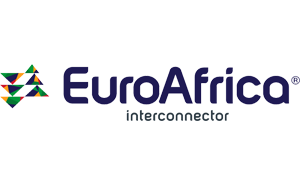
Cookie policy
Introduction
This policy will explain how this website is using cookies to provide clear and relevant information to users on what choices the user has in terms of controlling what happens when he/she accesses the website. The policy uses the term ‘cookies’ to refer to cookies and similar technologies covered by the law (such as, for example, Local Shared Objects – commonly referred to as “flash cookies”, web beacons or bugs, including transparent clear gifs). The accumulated information concerns data that could allow to identify web users/visitors by associating and processing them with other data kept by third parties (such as, for example, the IP address, domain and registration numbers of the computers used by people connecting to the website). These data are used and processed only for statistical purposes.
This document is an integral and substantial part of the Privacy Policy and the information notice contained in it also issued under the applicable Cyprus Law (Laws for the protection of personal data, Cypriot law that implements the above-mentioned European directives). We recommend, therefore, the reading of that document.
Applicable law
The matter is set forth by European Directive 2002/58/EC – subsequently amended by Directive 2009/136/EC and implemented by the national laws of the European Union member States – which requires to obtain consent for cookies and similar technologies.
What is a cookie
A cookie is a small file, typically of letters and numbers, downloaded on to a device when the user accesses the website. Cookies are then sent back to originating website on each subsequent visit. Cookies are useful because they allow a website to recognise a user’s device.
The use of cookies and similar technologies has for some time been commonplace and cookies in particular are important in the provision of many online services. Using such technologies is not, therefore, prohibited by the law but they do require that people are told about cookies and given the choice as to which of them they accept.
Different types of cookies
Session and persistent cookies
Cookies can expire at the end of a browser session (from when a user opens the browser window to when they exit the browser) or they can be stored for longer.
Session cookies – allow websites to link the actions of a user during a browser session. They may be used for a variety of purposes such as remembering what a user has put in their shopping basket as they browse around a site. They could also be used for security when a user is accessing internet banking or to facilitate use of webmail. These session cookies expire after a browser session.
The use of the so-called session cookies (that, in any case, are not stored persistently on the user’s computer and are deleted automatically as soon as the browser is shut down) is strictly limited to the purpose of transmitting data (made up of random numbers created by the server) identifying the specific session and necessary to allow a safe and efficient website surfing. The so-called session cookies used in this website avoid any other computer methods that could potentially compromise the privacy about users’ web-surfing.
Persistent cookies – are stored on a users’ device in between browser sessions which allow the preferences or actions of the user across a site (or in some cases across different websites) to be remembered. Persistent cookies may be used for a variety of purposes including remembering users’ preferences and choices when using a site.
First and third party cookies – Whether a cookie is ‘first’ or ‘third’ party refers to the website or domain placing the cookie. First party cookies in basic terms are cookies set by a website visited by the user – the website displayed in the URL window: i.e. cookies set by EuroAfrica-InterConnector.com. Third party cookies are cookies that are set by a domain other than the one being visited by the user: i.e. cookies which are set by web sites other than EuroAfrica-InterConnector.com. If a user visits a website (such as EuroAfrica-InterConnector.com) and a separate company sets a cookie through EuroAfrica-InterConnector.com, this would be a third party cookie.
Data controller
EuroAfrica Interconnector Limited, as identified in the privacy policy, is the data controller of – and is liable for – its own cookies, that is, “first party” cookies; otherwise, the “third-party” cookies fall under the controllership of those companies identified through the table contained in this document.
Consent about cookies
Some cookies are strictly necessary for the correct functioning of Internet and do not require user’s consent, such as those ensuring that the content of a page loads quickly and effectively by distributing the workload across numerous computers or else those providing security.
Other cookies are still reasonably necessary or important, but they are not strictly essential and, therefore, require user’s consent.
User’s consent is collected through different techniques implemented on this website. One mechanism is the click of the specific box on the cookie banner highlighting the use of cookies and published on the landing page.
Browser settings may be another means of refusing or providing consent about cookies by setting up user’s browser to warn of the presence of cookies, allowing the user to decide whether to accept the cookie or not. It is also possible to automatically reject all cookies by activating this option on the browser.
Each browser highlights instructions for this purpose.
Withdrawal of consent
Your consent to the use of cookies can be withdrawn any time even though the withdrawal of consent might have impacts on the functionality of the website.
Cookies that we use
When operating its website, EuroAfrica Interconnector Limited uses cookies to offer services, to improve user’s experience, as well as to develop aggregated statistics on the data collected for various reasons.
These cookies allow us to distinguish you from other users of the website which helps us to provide you with a good experience when you browse our website and also allows us to improve our website.
The cookies we use are “technical” and “analytical” cookies. They allow us to recognise and count the number of visitors and to see how visitors move around the site when they’re using it. This helps us to improve the way our website works, for example by making sure users are finding what they need easily. Read more about the individual analytical cookies we use and how to recognise them from the table below.
More specifically, this Internet site uses these types of cookies, as listed in the table below:
- technical: necessary for navigation within the site and in order to use certain functions (e.g. to navigate from one page to the other, etc).
- analytics: for statistical analysis of site accesses. Information is collected on aggregate basis.
This website does not use cookies to target advertising.
cookies is more complex but we are doing everything we can to provide the right information to users and to allow users to make informed choices about what is stored on their device.
For this reason, the company provides the addresses of such third parties to which sending requests or, failing that, here indicates how to remove cookies you do not want to accept.
Circulation and storage of data
Data concerning web contacts are not stored for a longer period than seven days except for any need of checking computer crimes damaging the website. No information coming from the web service will ever be either communicated or disseminated to unspecified recipients.
Cookie policy updating
The cookie policy of our website may be updated periodically, so it is recommended to consult this document each time you access the site, in order to be properly informed about how and why we use cookies.
More information on cookies we use
For more information on cookies installed through this Site, you can contact the following email address: [email protected]
Date of last version of this policy
Date of last version of this policy: 15/02/2018






